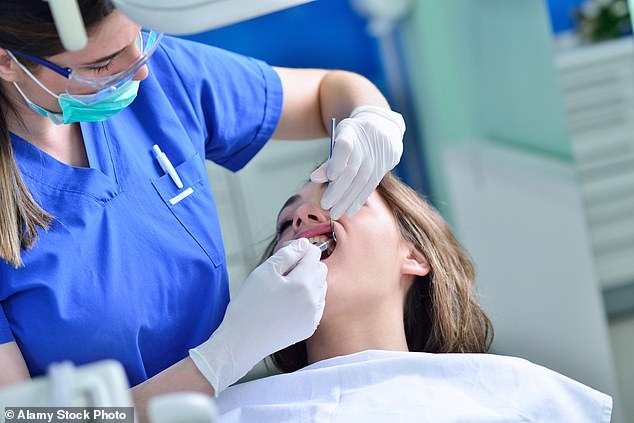One in 20 British adults travelled abroad for dental care last year amid difficulties in finding an NHS dentist and rising private costs, a report reveals.
The cost of treatment in the UK was the main reason cited by 6 per cent of adults who travelled abroad, according to the UK’s dentist regulator, the General Dental Council (GDC).
People also told the GDC they had travelled abroad for treatment after trying unsuccessfully to join a dental practice in their country or being unable to get an appointment locally.
Younger adults were more likely to opt for dental tourism compared to older age groups, with rates rising to 18 percent among 18- to 34-year-olds.
People reported receiving dental care in nearly 30 different countries, including France and India.
The cost of treatment in the UK was the main reason cited by 6 per cent of adults who travelled abroad, according to the General Dental Council (GDC).
One person even told the GDC that she included dental care in her regular holiday to Greece after failing to register with an NHS dentist near her home in the East Midlands.
The results are part of a major survey of 2,000 adults, carried out on behalf of the GDC, into the state of dentistry in the UK.
It revealed that public trust in NHS dentistry and their ability to access it has declined in recent years, amid growing reports of “dental deserts”.
About 20 percent said they had tried to book an appointment for dental care or treatment during the past year but had been unable to do so.
Among those who had not accessed medical care in the past 12 months, about 31 percent said they had not done so because of cost.
Less than two in three people (64 percent) said they had visited a dental office in the past year.
But a third (30 percent) said they did not have a regular dental office; 24 percent said they were dissatisfied with the affordability of their treatment; and 19 percent were dissatisfied with the time they had to wait for an appointment.
Of the total number of people who received some form of private dental care, 42 per cent reported that they had only started receiving private dental treatment in the last three years.
Most of those who opted for the private sector did so because they had difficulty accessing NHS care.
The GDC said some people had been “prioritising treatment over preventative dental care” because of the cost of living crisis.
Stefan Czerniawski, GDC’s executive director of strategy, said: ‘The findings highlight the current challenges facing dentistry and the need to make progress in addressing these systemic issues to improve access to timely appointments and the affordability of dental care across the UK.
‘It is particularly worrying that the research shows clear evidence of patients’ concerns that the recovery of dental services following the Covid pandemic has not only stalled, but may have gone into reverse.
“This has worrying implications for the oral health of patients and the public, which urgently needs attention.”
Louise Ansari, chief executive of Healthwatch England, said NHS dental care was one of the main reasons the public contacted the patient advocate.
She added: ‘Even when people can access NHS dental care, many cannot afford dental fees.
‘We now call on the new government to inform the public when and how it will implement the 700,000 additional appointments it has committed to providing under a new Dental Rescue Plan.
‘We are also calling for NHS dental charges to be frozen at current levels by 2025 to prevent more people from seeking help.
‘In the longer term, more fundamental reforms are needed to give everyone the right to register with a local NHS dentist, in the same way as they can with a GP, to access regular check-ups and appointments.’
Eddie Crouch, president of the British Dental Association, which represents dentists, said: ‘The cost of living and access crises have converged, leaving millions of people without choice.
‘Some go abroad to get the care they need, but many more simply go without.
“The public sees no light at the end of the tunnel for NHS dentistry. Bold and ambitious measures will be needed to save it.”
A Department of Health and Social Care spokesman said: “It is unacceptable that so many people are struggling to get a dental appointment and this research highlights the scale of the situation.
‘There are large areas of the country where NHS dentistry virtually no longer exists.
‘We will rebuild NHS dentistry, starting with 700,000 additional emergency dental appointments.
‘We will also reform the dental contract to encourage more dentists to offer NHS services to patients.
‘Prevention is better than cure, which is why we will also introduce supervised tooth brushing for children aged three to five.
“These changes are essential to ensuring we build an NHS fit for the future.”


